Portraits of life, death and desolation on the Western Cape
- Text by Mischa Frankl-Duval
- Photography by Pierre Crocquet

Knysna became a prosperous centre of industry in the nineteenth century. But some of its residents were left behind.
Though their work made the area’s prosperity possible, the woodcutters of Knysna forest received no share of the spoils. Exploited for generations by timber merchants, they continued to live in dreadful poverty. When logging of the indigenous forest was outlawed in 1939, the newly-jobless woodcutters were relocated to the remote village of Karatara.
Long isolated from wider society, a number of the woodcutters’ descendants developed severe mental and physical disabilities. Life in the community remains difficult.
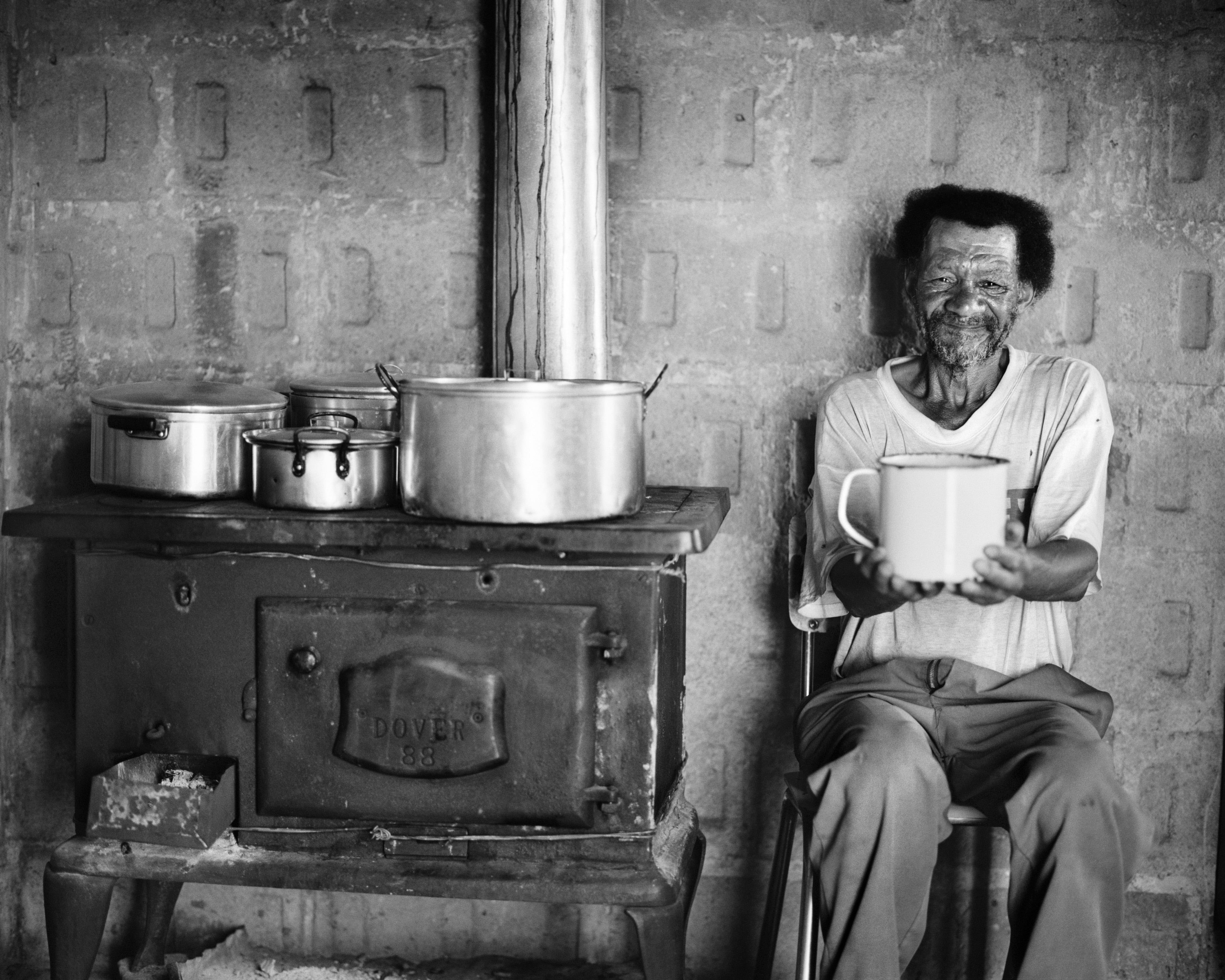
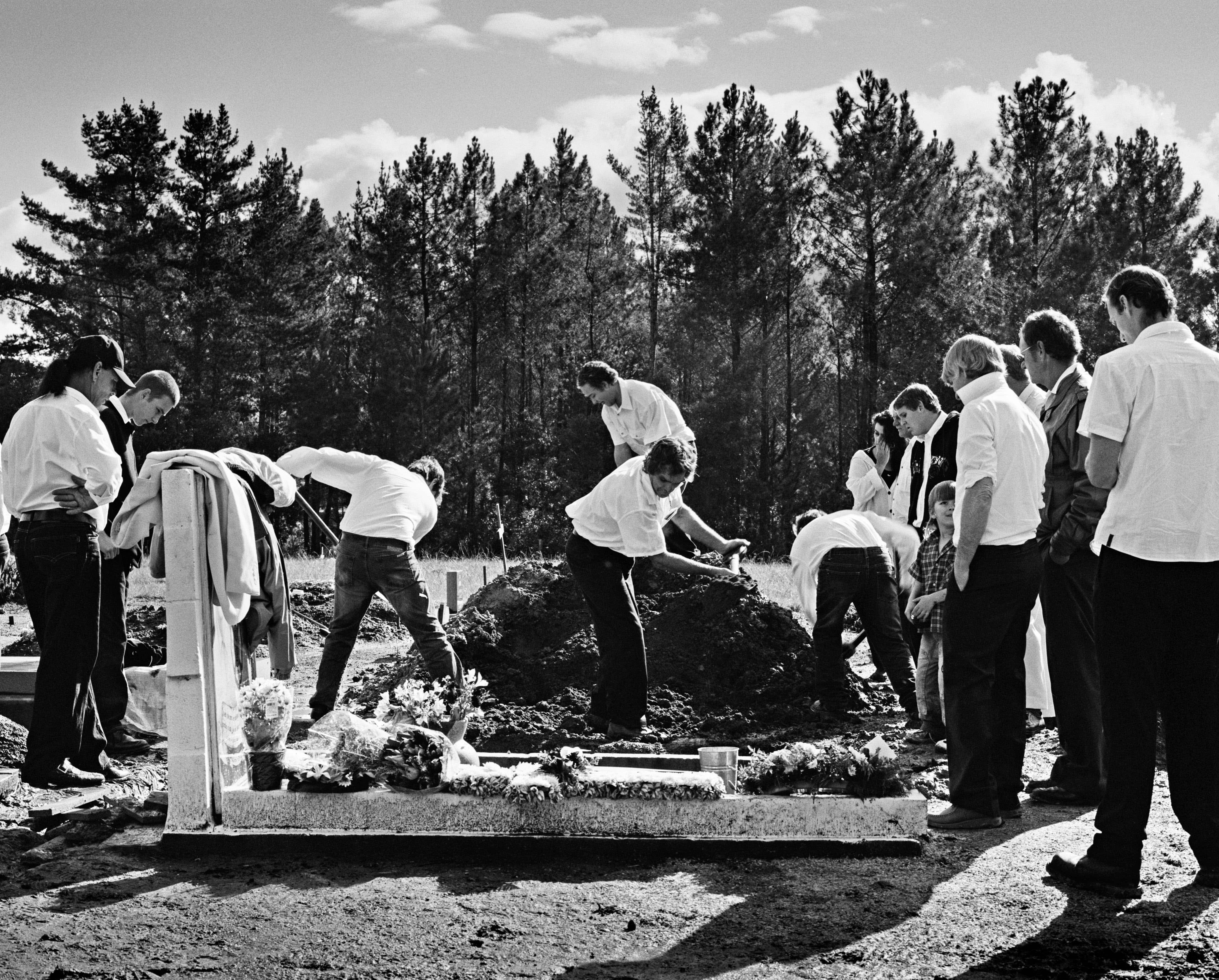
Pierre Crocquet first encountered the woodcutters’ descendants during childhood holidays to the region, and developed an instant fascination with them. Years later, they became the subject of his first major documentary series. Having primarily shot street scenes on 35mm film, Crocquet turned to 6×7 medium format for Enter Exit, a decision reflective of a new seriousness in his work.
Crocquet photographed the residents of Karatara over two years, painting a frank, all-encompassing portrait of the community. He didn’t shy away from the cruellest aspects of life in the Cape – death, disability, poverty – though the series is not without warmth or humour. In one shot, a weather-beaten worker extends a vessel to the photographer in hospitality. In another, an elderly woman nonchalantly sips tea, a pig’s head nestling in a bowl on her table. Elsewhere, a man with no legs smiles in front of a clothesline weighed down by several pairs of jeans.
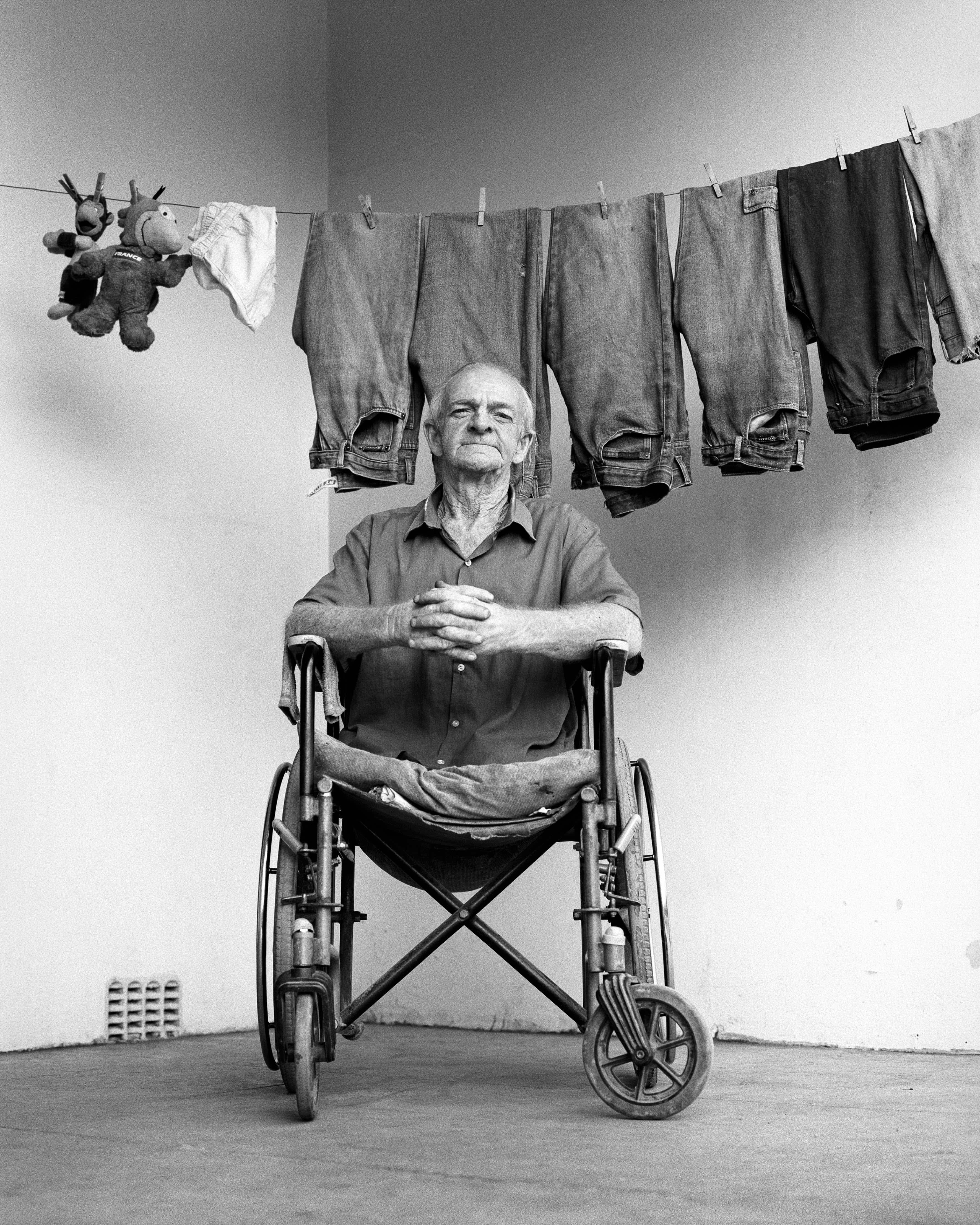
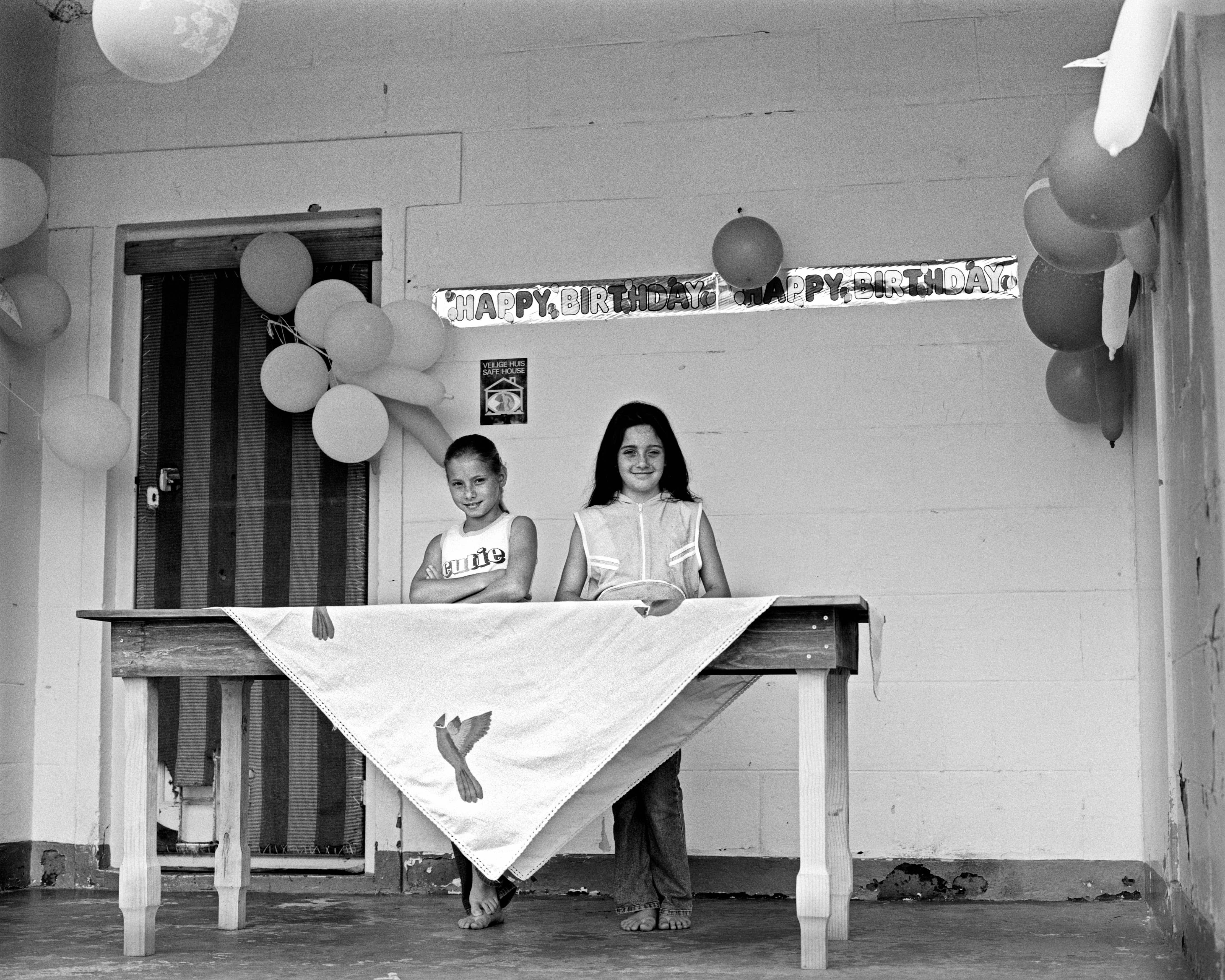
Crocquet, who was killed in a hit and run accident in 2013, left the images untitled, but his field notes, jotted on the back of his initial prints, give clues as to his conversations with his subjects. On the photo of an amputee farmhand is written simply “I walked far”, and “trouble at home.”
Ten years on, a number of Crocquet’s subjects are dead. His portraits of a dwindling population have become more poignant as the residents of Karatara continue to move on.
Crocquet’s own legacy is kept alive by his sister Jeannine, who lovingly organises and shares photos from his archive. His work is still exhibited internationally, and is collected in five books, but social media has spread it further still. Jeannine shares Pierre’s work on Instagram, reddit and Facebook, and on each of those platforms, his work is consistently popular.
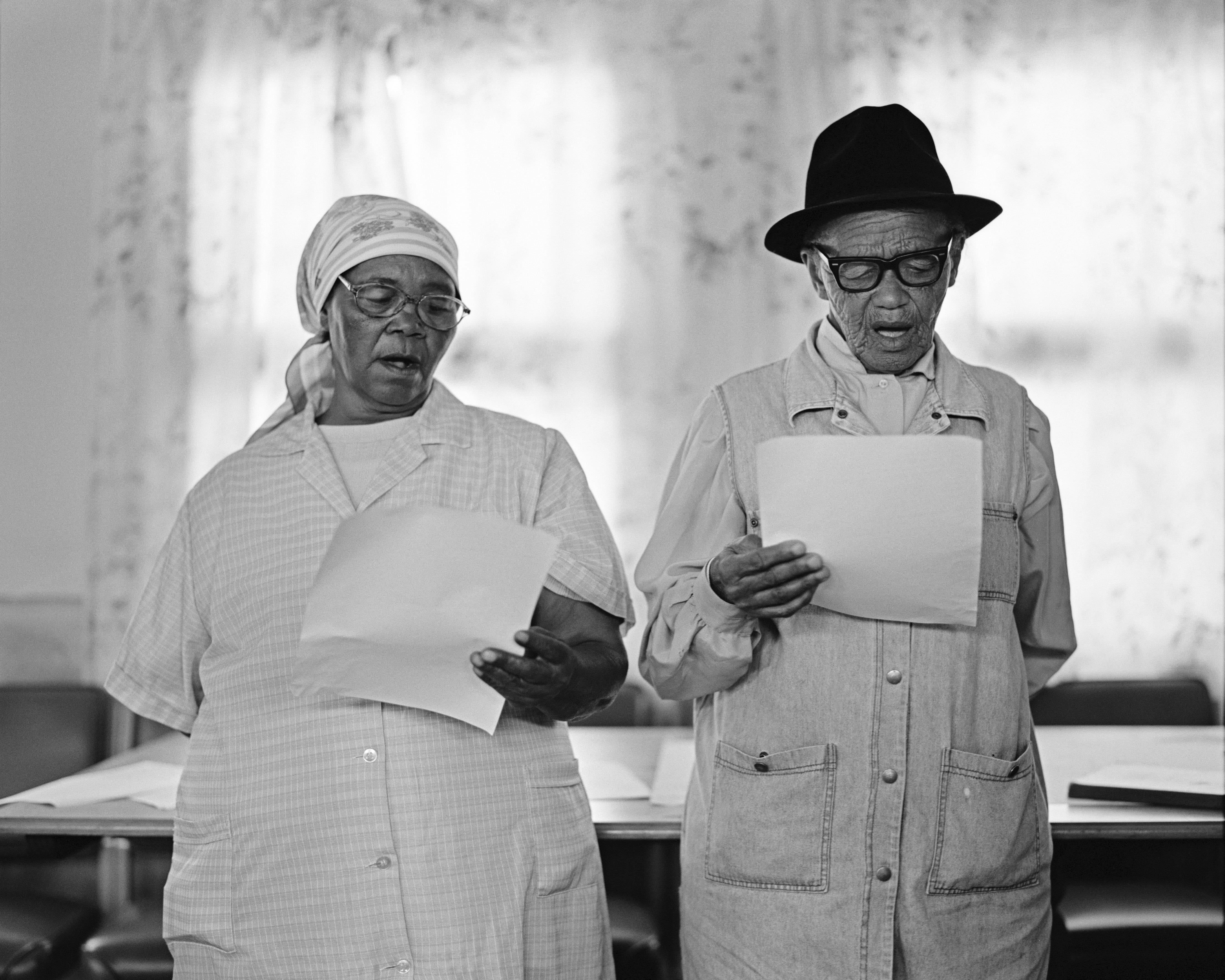
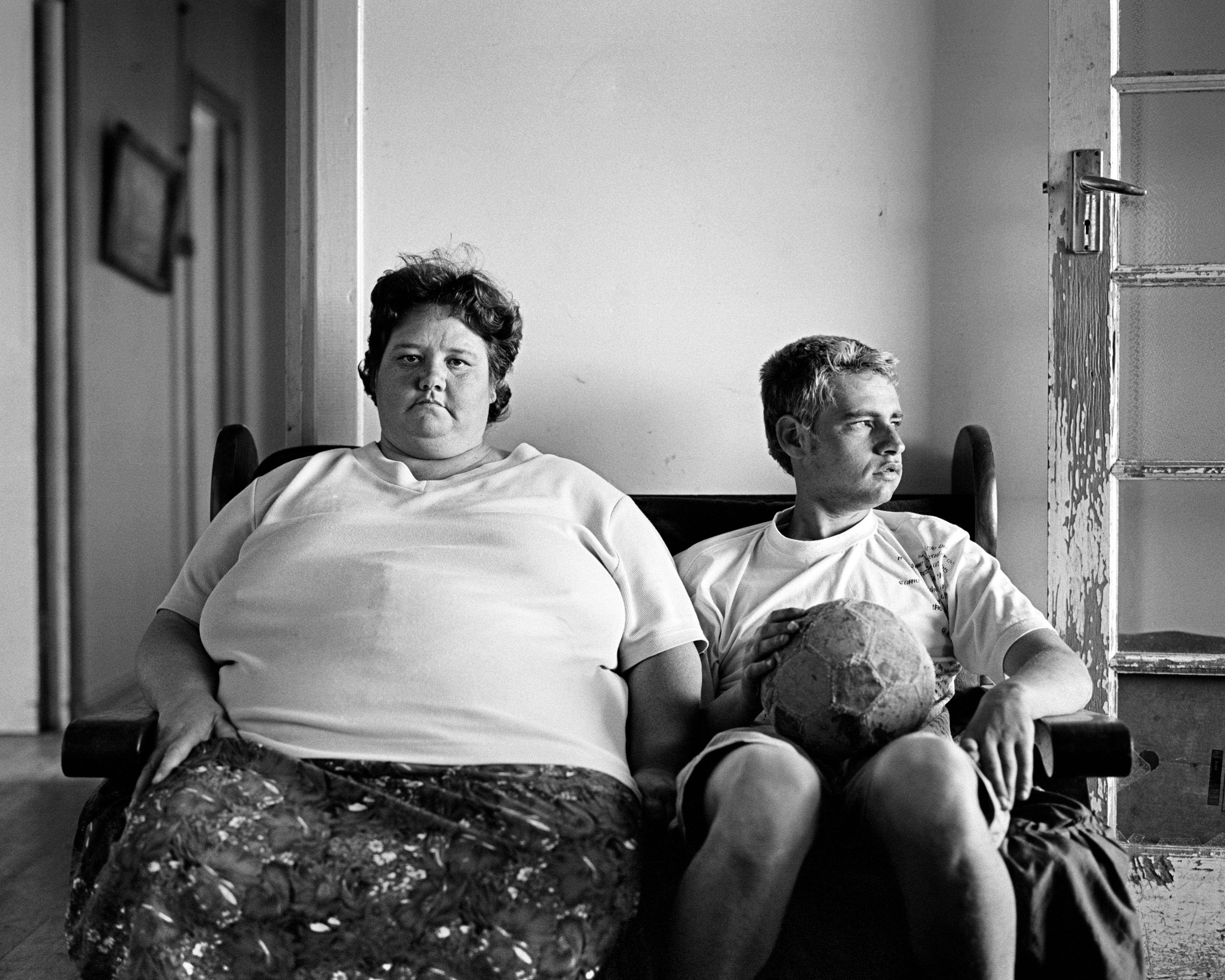
“It’s really quite organic,” says Jeannine, “it goes quiet for a while and then something springs up and there is interest again. The role it has played in bringing awareness to the work is phenomenal.”
Though Pierre’s photographs are popular online, and acclaimed in certain quarters, Jeannine believes they are less well-known than they should be. Some of her brother’s work will be shown as part of a major exhibition at Johannesburg’s Standard Bank Gallery in 2018. Further down the line, Jeannine hopes to re-publish some of her brother’s early street work in a large, affordable volume, making it readily accessible to a new generation of readers.
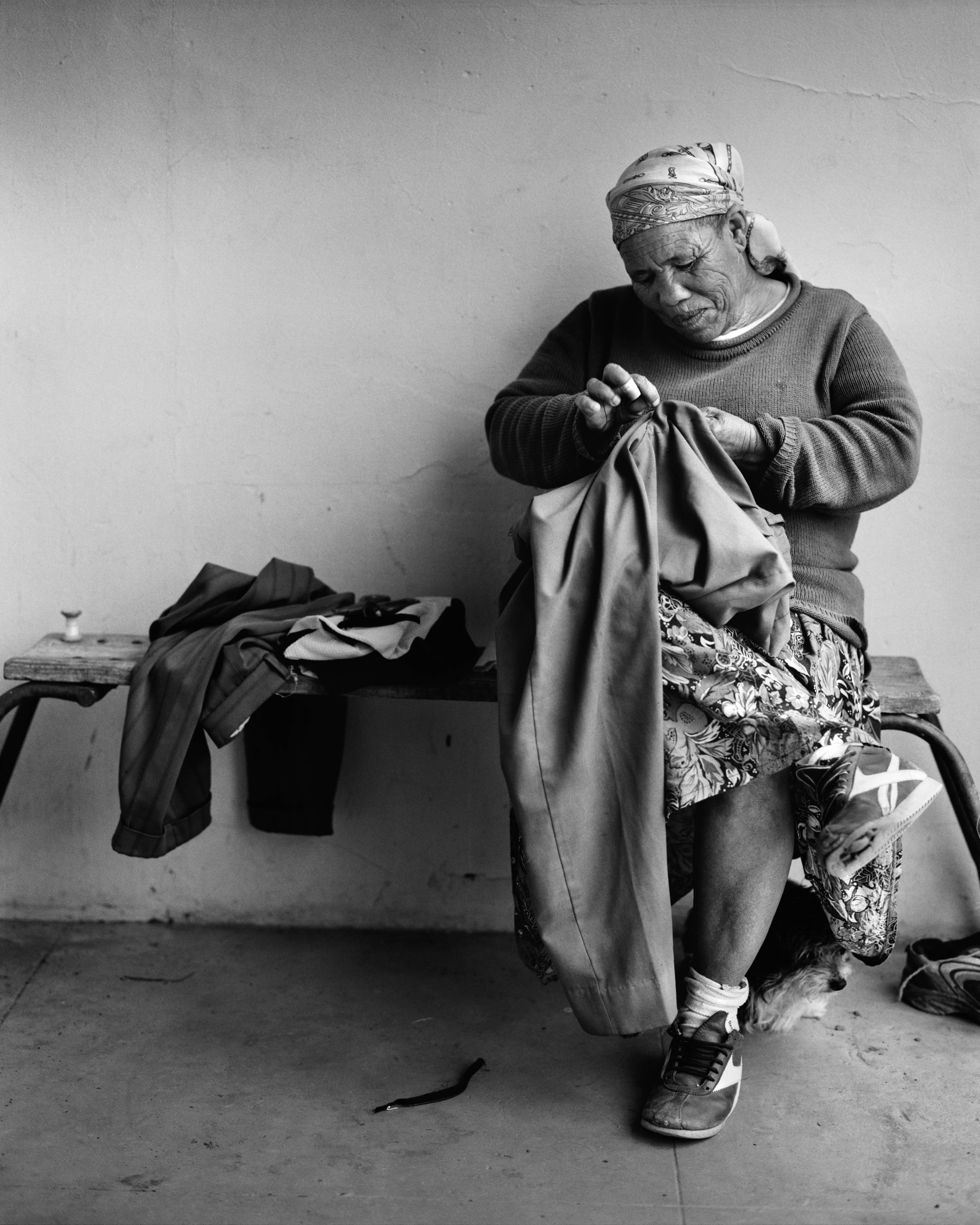
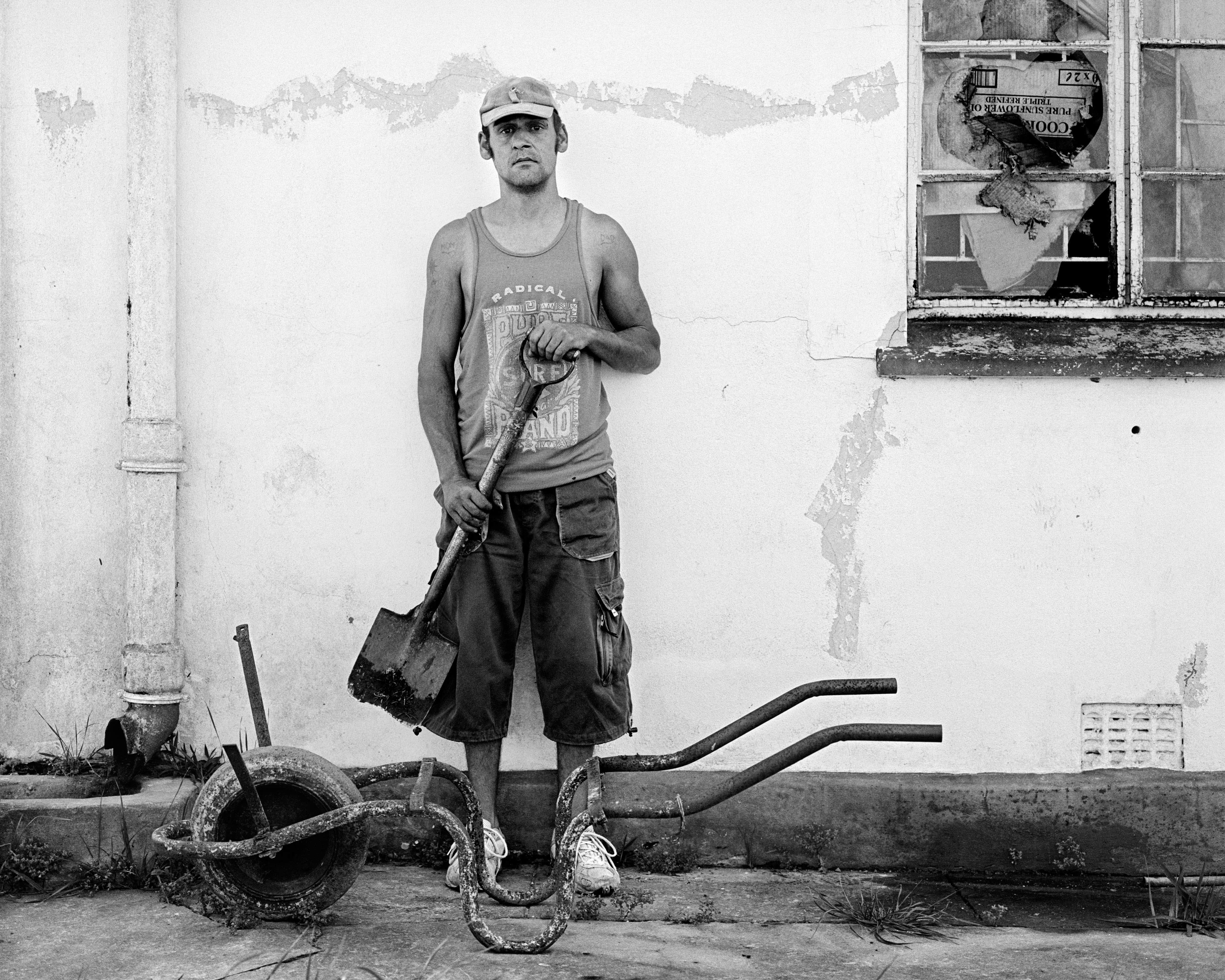
As a specialist in South African art reference, she is well placed to manage Pierre’s catalogue. Little surprise, it holds a particularly important place in her heart.
“It makes me feel really fantastic, quite honestly” she says. “Constantly working with the images, the scribblings on the contact sheets, going through his many notebooks… it keeps him very much alive. It’s a way of communicating with him about something that was extremely important to him.”

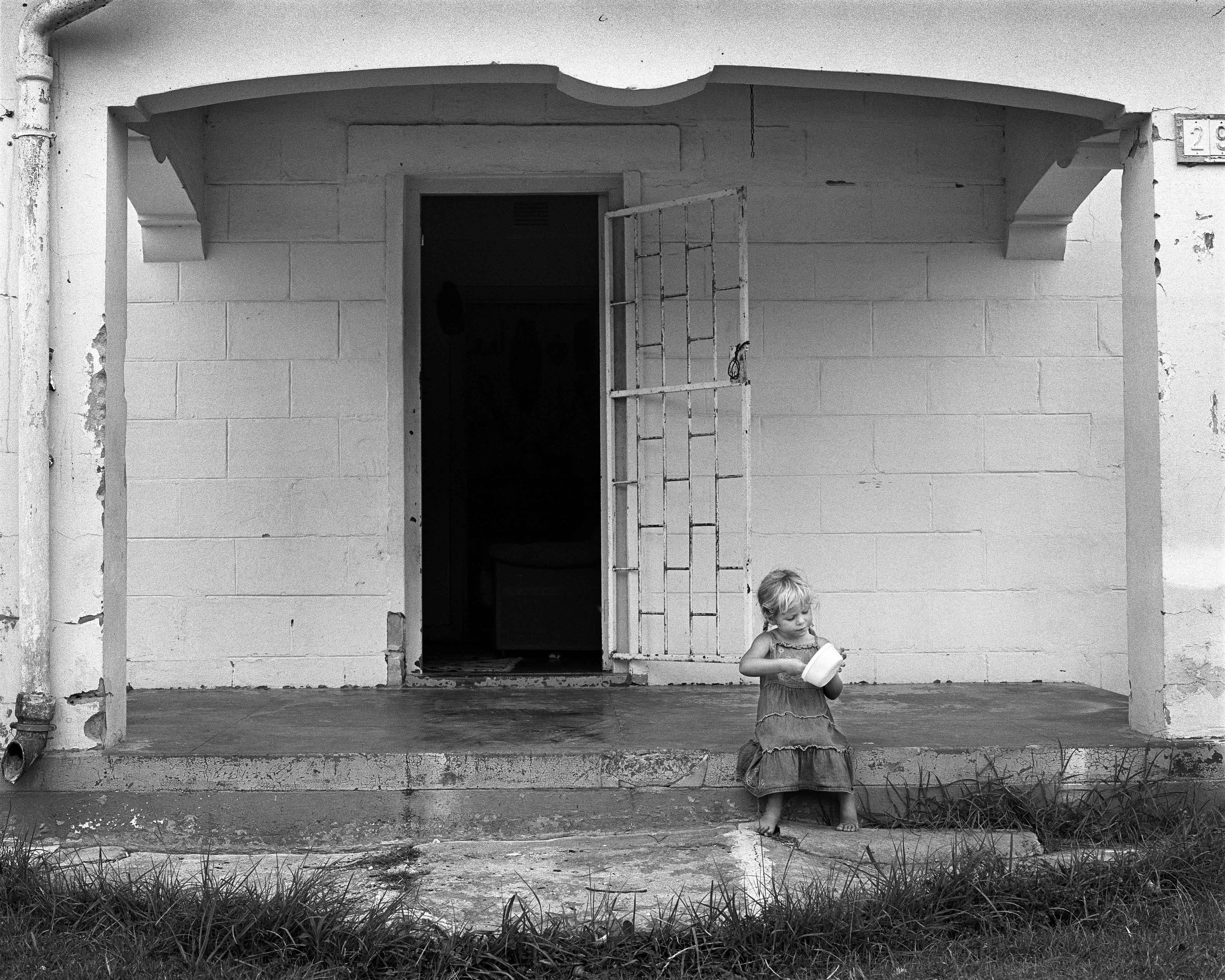
See more of Pierre Crocquet’s work on his official website.
Enjoyed this article? Like Huck on Facebook or follow us on Twitter.
You might like

Jake Hanrahan: “Boys can cry, but we don’t all fucking want to”
Hard Feelings — In the latest edition of our column on masculinity and fatherhood, Rob Kazandjian speaks to the conflict filmmaker-journalist and Popular Front founder about his childhood, the found family and community at his Muay Thai gym, and the “complete counterculture” of ‘no rules’ fighting.
Written by: Robert Kazandjian

Euphoric portraits of queer joy and resistance at Trans Pride Brighton
Let us piss — Now over a decade old, the event grew to become Europe’s largest trans pride march. In a year when trans rights have come under the microscope more than ever, we went to this year’s edition, finding grassroots unity and collective rage.
Written by: Ella Glossop

Remembering the radical anti-nuclear Greenham Women’s Peace Camp
Life at the Fence — In the early ’80s, a women’s only camp at an RAF site in Berkshire was formed to protest the threat of nuclear arms. Janine Wiedel’s new photobook revisits its anti-establishment setup and people.
Written by: Miss Rosen

A new documentary traces the rise, fall and cratering of VICE
VICE is broke — Streaming on MUBI, it’s presented by chef and filmmaker Eddie Huang, who previously hosted travel and food show Huang’s World for the millennial media giant.
Written by: Ella Glossop

Warm, tender photos of London’s amateur boxing scene
Where The Fire Went — Sana Badri’s new photobook captures the wider support networks and community spirit around the grassroots sport, as well as the significance of its competitions to the athletes who take part.
Written by: Isaac Muk

We are all Mia Khalifa
How humour, therapy and community help Huck's latest cover star control her narrative.
Written by: Alya Mooro

